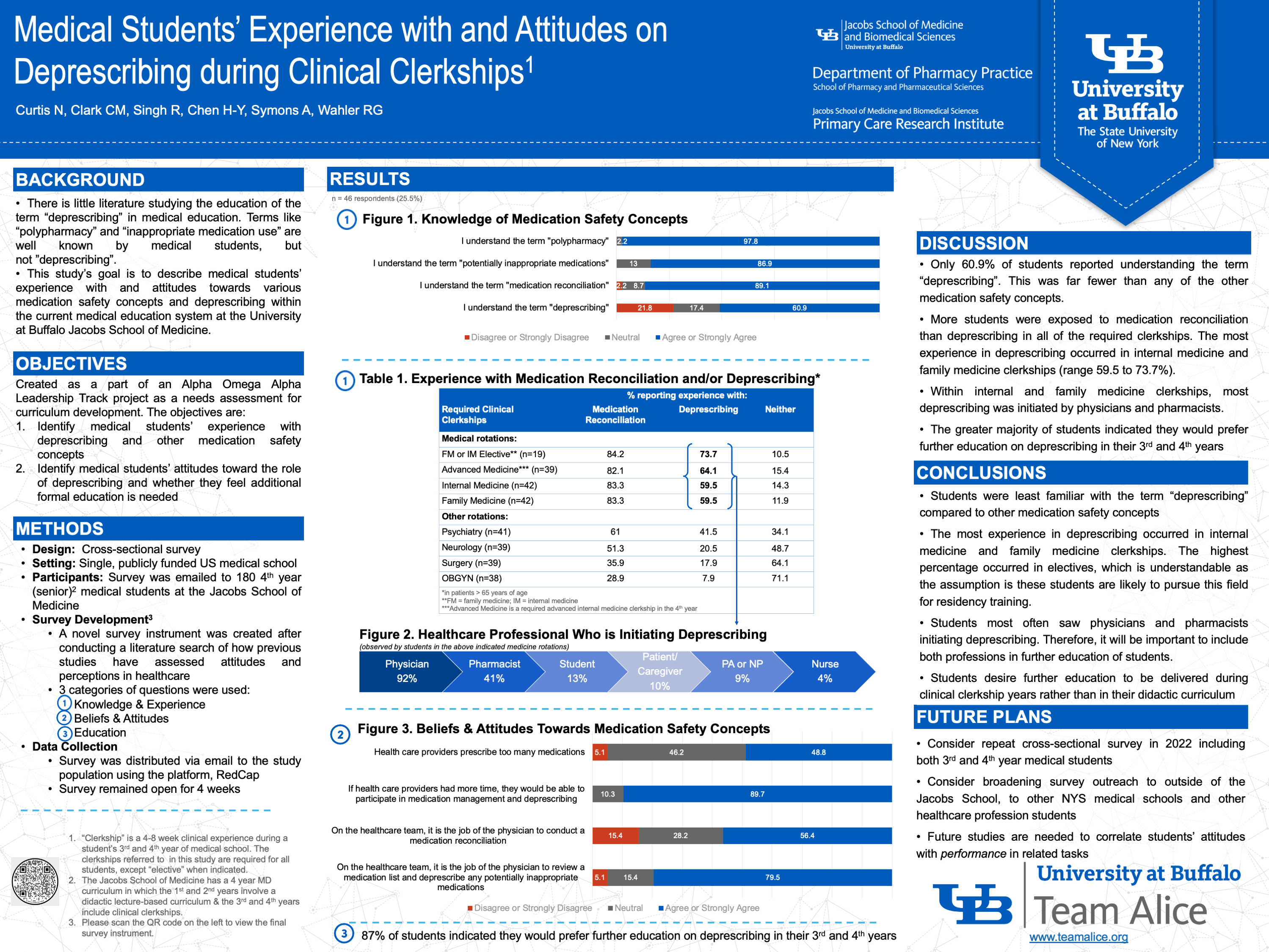PCR037: Medical Students’ Experience with and Attitudes on Deprescribing
Nicole Curtis; Collin Clark, PharmD; Ranjit Singh, MD, MA, MBA, MBBChir; Huei-Yen Chen; Andrew Symons, MD, MS, FAAFP; Robert Wahler, BPharm, PharmD, BCGP, FASCP, CPE
Abstract
Context: Deprescribing is a term used to describe the identification and elimination of inappropriate medications to reduce harm and polypharmacy. While this activity has been common in elder care for decades, polypharmacy and inappropriate medication use remains common. Education has been identified as a key strategy to improve providers’ abilities to deprescribe, yet there is a paucity of literature studying this area. Objective: Describe medical students’ experience with and attitudes toward medication safety concepts and deprescribing training in medical education. Study Design: Setting or Dataset: Population studied: As part of a curricular improvement project, an online survey was designed and administered to fourth year medical students at the University at Buffalo (UB) Jacobs School of Medicine and Biomedical Sciences. All medical students in the 4th medical year were invited to participate in the survey. Outcome Measures: A novel survey instrument was developed to assess students’ experience with and attitudes toward medication safety concepts and deprescribing training in medical education. Results: The overall response rate was 25.6% (46/180). Of 4 medication safety terms (medication reconciliation, polypharmacy, potentially inappropriate medications and deprescribing), deprescribing was least familiar with 10 (21.7%) disagreeing that they understood the term. The majority (95.7%) endorsed learning concepts related to potentially inappropriate medications and deprescribing during their third and fourth-year clinical clerkships and 15 (32.6%) in their didactic coursework within the first 2 years. Of those who responded to the item on future educational needs in deprescribing (n=39), 87.2% desired it to be delivered during their clerkships and 30.2% in the didactic curriculum. Conclusions: This study identifies an opportunity to improve medical students’ knowledge on deprescribing at our institution. The concept of deprescribing should be targeted as an experiential medical education goal. Students have indicated their desire for further education to be delivered during their clinical clerkship years versus their didactic curriculum. Future studies are needed to correlate students’ attitudes with performance in related tasks.

Dennis Baumgardner, MD
11/19/2021Thanks for exploring this important topic!